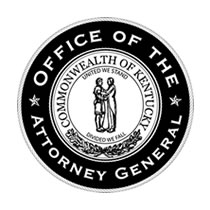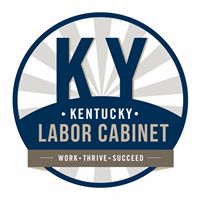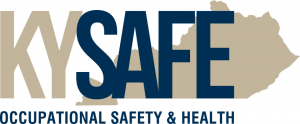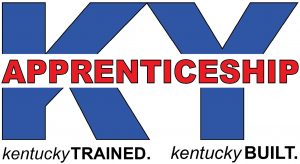 Attorney General Andy Beshear said his office has completed a review of publicly available data and determined that the governor’s Labor Cabinet may have failed to secure a single bond for any mining company operating in the state. Beshear’s review indicates that as many as 30 mining companies should have bonds on file, without which nearly 1,000 mining employees are at risk.
Attorney General Andy Beshear said his office has completed a review of publicly available data and determined that the governor’s Labor Cabinet may have failed to secure a single bond for any mining company operating in the state. Beshear’s review indicates that as many as 30 mining companies should have bonds on file, without which nearly 1,000 mining employees are at risk.
In a five-page report, Beshear said the Labor Cabinet has not only failed to enforce a state law that aims to protect four weeks of employee pay if their company shuts down, they actively tried to repeal it. The law (KRS 337.200) applies to certain businesses, including mining companies who have done business in the state for fewer than five consecutive years.
Beshear began his review following media reports that the cabinet failed to require the now bankrupt Blackjewel in Harlan County to post a bond. After the mine closed July 1, miners’ paychecks bounced and they have not since been paid. Beshear wanted to find out if other miners face the same risk.
“In response to Blackjewel’s closing, the Labor Cabinet claimed ‘there is no mechanism in law for them to figure out when a new company has opened in the state that is supposed to post a bond,’ but my office was able to determine this with publicly available information within a few days,” Beshear said. “The Labor Cabinet has an absolute duty to enforce the law and has utterly failed to do so. They must begin enforcing these bonds to assure no one ever goes through what the Blackjewel miners are going through.”
Beshear’s review included visiting the Energy and Environment Cabinet’s (EEC) website to study a publicly available list of mining licenses and the Secretary of State’s website to view each licensee’s business filing. Beshear’s office then compiled a list of licensed mining companies the EEC has authorized to operate in the state, and which have been doing so for fewer than five consecutive years.
Monday, Aug. 26, after a delay, Beshear received a response to his open records request for a copy of any bonds on file at the Labor Cabinet. Beshear’s office quickly concluded that the cabinet failed to secure any of the required bonds from mining companies.
The office also used the EEC Division of Mine Safety 2018 Annual Report to determine how many miners may be working at the mines operated by the licensees who should have been on file with the cabinet.
Beshear’s letter says the cabinet had various accessible ways to track and enforce the law, including working with other agencies and utilizing the cabinet’s claim to broad subpoena powers to investigate labor law violations.
Instead of enforcing the law, however, the Labor Cabinet took time to unsuccessfully attempt to repeal it, Beshear said.
At the March 1, 2018, meeting of the House Standing Committee on Economic Development and Workforce Investment cabinet officials testified in support of repealing the bond requirements. The bill passed committee, but did not receive a vote on the floor of the Kentucky House of Representatives.
“While the Labor Cabinet may prefer that these laws be repealed, it has a duty to enforce them while they remain on the books,” Beshear said. “The cabinet should use the many public resources we have identified to do so.”
Since Beshear learned of the troubling complaints surrounding the closing of the Blackjewel mine, he has taken action. Beshear previously instructed his office to use all of its powers and resources to seek answers for those who have been harmed.
Beshear has dedicated an investigator to look into complaints of clawed-back paychecks and concerns related to child support deductions and has reached out to local county attorneys on these same child support issues. Devoted mediators from Beshear’s office are available to help employees mitigate debts owed to individuals or businesses as a result of bounced paychecks.
Beshear also joined with Virginia Attorney General Mark Herring to ask for the immediate payment of all wages owed to Blackjewel employees. In their joint request to the Office of the United States Trustee July 16, the attorneys general cite the serious and ongoing financial harm experienced by miners in Kentucky and Virginia following Blackjewel’s haphazard bankruptcy.
Beshear asks anyone with complaints or information related to Blackjewel’s bankruptcy to contact his office at 502-696-5300 and ask to speak with Jan Velez. Beshear’s office will track and route each caller to the appropriate contact.
 Kentucky Labor Cabinet Secretary David Dickerson announced that the Cabinet’s Office of Inspector General has completed the investigation into whether Kentucky teachers engaged in an illegal work stoppage, also known as a “sick out,” during the 2019 session of the General Assembly. The investigation found that 1,074 teachers did violate Kentucky law, which clearly prohibits work stoppages.
Kentucky Labor Cabinet Secretary David Dickerson announced that the Cabinet’s Office of Inspector General has completed the investigation into whether Kentucky teachers engaged in an illegal work stoppage, also known as a “sick out,” during the 2019 session of the General Assembly. The investigation found that 1,074 teachers did violate Kentucky law, which clearly prohibits work stoppages.
KRS 336.050(2) gives the Cabinet the discretion to prosecute and assess civil penalties of up to $1,000 per person, per day of work stoppage on any violation of a labor law in the state of Kentucky. Dickerson noted that while no penalties will be assessed for violations in this specific instance, this investigation was necessary to ensure that public schools remain open during the upcoming school year and that similar work stoppages do not occur in the future.
“Kentucky law clearly prohibits public-sector employees from engaging in work stoppages that many teachers engaged in during the early months of 2019,” noted Dickerson. “Those teachers who participated in this concerted effort were in clear violation of the law, as noted by the Kentucky Education Association and recently affirmed by a federal court.”
In a clear and decisive victory for the Cabinet, United States District Judge Danny Reeves acknowledged that the Labor Cabinet had every right to investigate public school teachers for their conduct. “Kentucky statutes explicitly grant the Labor Cabinet the authority to prosecute and assess civil penalties against public employees, which includes public-school teachers who may have violated KRS Chapter 336,” Reeves stated. “Students are expected to attend classes. If they fail to do so without a valid excuse, their absence is duly-noted and appropriate action is taken. But the teachers at the center of this controversy expect[ed] different treatment.” A full copy of the Court’s Order can be found here.
“It is important to note what the Court explicitly stated,” added Dickerson. “Citizens of the Commonwealth have a strong and continuing interest in public schools remaining open during the school year. The purpose of the Cabinet’s investigation was to undertake a thorough investigation into conduct by some public school teachers and ensure that work stoppages do not happen again so that public schools will be able to fulfill their mission to educate the children of Kentucky. The Cabinet remains dedicated to that mission and will continue to monitor any future ‘sick outs’ closely for further violations of Kentucky labor law.”
“Let it be clearly understood that the grace extended in this instance will not be extended for future such proven violations,” said Dickerson. “The public cannot tolerate another illegal work stoppage in our schools. It is important for public school teachers to understand the level of seriousness that, by law, the Labor Cabinet must and will give to any future work stoppages. We dedicate ourselves to students and parents across the Commonwealth to make sure that this doesn’t happen again, and that our schools will remain open.”

Photo: Kentucky Labor Department
The Kentucky Labor Cabinet will host free OSHA training in Louisville from October 2-6. The week-long workplace safety seminar is a part of the Labor Cabinet’s Population Center Training series which are held in various cities across the state throughout the year.
Population Center Training courses are for both employers and employees and are typically given over a one-week period at each location. The courses are designed to outline the requirements contained in the various subparts of the General Industry and Construction Standards, covering both safety and health issues. All classes are free of charge and open to the public.
What: Louisville Population Center Training
When: Monday, October 2, 2017 – Friday, October 6, 2017
Where: University of Louisville Shelby Campus
Founders Union Building, Room 6
Louisville, KY 40218
Register online HERE
Monday October 2, 2017
Overview of the Kentucky OSH Program 8:30am – 11:30am
This course discusses the obligation to provide a safe and healthy workplace free from recognized hazards. Topics of discussion include the operations of the Kentucky Occupational Safety and Health Program, including enforcement and voluntary compliance services, and safety and health topics currently being considered for future standards and policies.
Hazard Communication/Global Harmonization 1:00pm – 4:00pm
This course covers the basic requirements of 29 CFR 1910.1200 and the revised provision of the standard as they relate to the Globally Harmonized System of Classification and Labeling of Chemicals (GHS). Attendees will learn about the revised standard, which will include chemical hazard classification, written program requirements, container labeling and other forms of warning, safety data sheets, and associated phase-in dates for the new requirements under GHS.
Tuesday October 3, 2017
Injury and Illness Recordkeeping 8:00am – 12:00pm
This course is for those persons responsible for maintaining the revised injury and illness records. The forms 300, 301, 300A will be covered. The regulations and guidelines for recordkeeping will be discussed, as well as the compliance directive the Kentucky OSH compliance officer will use to evaluate your records. A recordkeeping example workshop will be part of the course, time permitting. Note: Students will receive an OTI certificate for this class.
Confined Spaces 1:00pm – 4:00pm
This course explains the regulations regarding entry into and working in confined spaces. Topics include confined spaces found in the workplace and the hazards associated with them, the regulatory impact of the 1910.146 standard, developing a written program, training employees, permit systems, rescue, and employee participation.
Wednesday October 4, 2017
Fall Protection Part 1 8:00am – Noon
This course covers recent changes in the OSHA Federal and State Fall Protection standards for general industry and construction including the new and proposed changes to the ANZI Fall Protection Standards System. Topics include the requirements to provide a fall protection system, the description and requirements for the various types of fall protection systems, training, and associated requirements.
Fall Protection Part 2 1:00pm – 4:00pm
This course provides hands on training in Fall Protection Systems and include the care, use, inspections, cleaning, storage and certification of the components of Personal Fall Arrest Systems (PFAS) and Fall Restraint Systems as well as Retractable Life Lines, Lanyards and anchorages. Students should be prepared to don and doff harnesses, ladder belts and attached devices such as retractable lanyards and lanyards. Attendees are encouraged to bring gloves rated for rigging and climbing to use while handling devices. There is no climbing in the class.
Thursday October 5, 2017
Powered Industrial Trucks 8:30am – 11:30am
This course covers the basic requirements of 1910.178. Attendees will learn about the basic aspects of powered industrial trucks (primarily fork lifts), operator training requirements, safe truck operations (including traveling & safety belts), equipment modifications, and associated hazards. This course will not provide operator certification under 1910.178(L).
Bloodborne Pathogens 1:00pm – 4:00pm
This session covers the requirements of 29 CFR 1910.1030 and the measures which must be implemented to protect employees from the hazards of occupational exposure to blood and other potentially infectious materials containing bloodborne pathogens, such as hepatitis B virus, (HBV) and human immunodeficiency virus (HIV). Topics of discussion include applicable definitions; infection control; engineering and work practice controls, including universal precautions, personal protective equipment, and housekeeping; medical evaluations; warning signs and labels; and training of employees.
Friday October 6, 2017
Wage & Hour Overview / KySafe eLearning Overview 8:30am – 11:30am
This session provides an overview of Kentucky wage and hour laws, such as minimum wage, overtime, recordkeeping, illegal deductions and payment of wages. It also provides an overview of the free training modules and webinars available as part of the KySafe online training resource

Photo: Kentucky Labor Department
Last month, the Labor Cabinet conducted 33 free on-site visits, or “consultative surveys,” for employers across Kentucky. As a result of these surveys, employers corrected 227 serious violations that could have resulted in enforcement penalties of up to $1,589,000.
The Labor Cabinet’s Division of Occupational Safety & Health Education & Training leads the Cabinet’s proactive efforts to create safe and healthful workplace conditions, including overseeing a new web-based training service called eTrain (www.KYSAFE.KY.GOV). This new online training module will offer a variety of safety and health training topics, certificates, and live and recorded webinars all at no cost.
In addition to eTrain, the Cabinet provides free consultative services to employers across Kentucky on ways to increase workplace safety – including how to improve Injury and Illness Rates. Services include free on-site consultations to all employers, as well as other compliance assistance, educational materials, and class-style training for all employers.
Last year, the Division conducted 350 free consultative surveys for employers across Kentucky. This resulted in employers correcting 3,813 serious conditions that could have affected up to 108,307 employees resulting in enforcement penalties of up to $26,691,000.
Additional information is available at http://labor.kentucky.gov.
Follow the Kentucky Labor Cabinet on Facebook and Twitter for all the latest updates.

Photo: Kentucky Labor Cabinet
Last month, the Labor Cabinet recouped $43,785.07 in unpaid wages for Kentucky workers.
Unpaid overtime, withheld final paychecks, illegal deductions of pay and lower pay than the legal minimum wage requirement are among the types of wage and hour violations that the Cabinet prosecutes. Other examples include unpaid breaks, time-clock shaving, mandatory tip-pooling and prevailing wage violations.
The Labor Cabinet’s Division of Wages, Hours, & Mediation is responsible for enforcing Kentucky’s wage and hour and child labor laws. It also enforces prevailing wage requirements that were in effect before the enactment of H.B. 3. Enforcement typically begins upon the receipt of a complaint. Investigators are then assigned to the case to determine compliance with the state’s wage and hour laws, monitor the correction of any violations, and collect back wages improperly withheld from employees. To find out more about the Commonwealth’s wage and hour laws, please check Division of Wages, Hours, & Mediation website by clicking HERE. An Employment Complaint Form can be found HERE.
Follow the Kentucky Labor Cabinet on Facebook and Twitter for all the latest updates.

Photo: Kentucky Labor Cabinet
Gov. Matt Bevin and Labor Deputy Secretary Mike Nemes joined officials from Norton Healthcare in Louisville last week to announce a new apprenticeship for nurses that is one of the first of its kind in the country.
This Student Nurse Apprenticeship Program is a paid apprenticeship that provides educational and clinical experiences over 12 to 18 months to prepare students for a registered nurse role after graduation. Eligible students include nurses who are in their junior year of a Bachelor of Science degree in Nursing program or with one semester completed of an associate degree in nursing program.
“Innovative training programs, like this one at Norton Healthcare, deserve to be celebrated,” said Gov. Bevin. “I have challenged Kentucky employers to think and act boldly, and Norton Healthcare has answered that challenge in an impressive way. This apprenticeship program is one of the first of its kind in the country and will be transformational for Norton’s workforce. I believe it will inspire other employers around Kentucky to explore ways that apprenticeships can take their business—and Kentucky—to the next level.”
With just over 70,000 active registered nurses currently in Kentucky, it is projected that an additional 4,500 nurses will be needed in the next 10 years to meet demand. The 125 new apprentices in this program will both provide Norton Healthcare with an effective workforce recruitment and training tool while also displaying the potential that this could bring to other healthcare providers across the county.
“The ‘Kentucky Trained. Kentucky Built.’ registered apprenticeship initiative encompasses a new era of apprentice able trades never before seen in the Commonwealth, and today provides a fitting example of this,” Labor Secretary Derrick Ramsey stated. “Nursing is a new frontier for apprenticeships, but with Norton Healthcare’s vision, we couldn’t be more excited to partner with them and the new student nurse apprentices who are taking advantage of this wonderful program to further their careers. It’s a win for Norton Healthcare, the apprentices, and the entire healthcare community as we continue to seek ways to address the workforce needs in this critical industry.”
Serving the Greater Louisville region and beyond for more than 130 years, the hospital and health care system is the Louisville area’s third largest private employer. The Louisville-based not-for-profit system includes five Louisville hospitals with 1,837 licensed beds; seven outpatient centers; 13 Norton Immediate Care Centers; more than 14,000 employees; more than 850 employed medical providers; and approximately 2,000 total physicians on its medical staff.
“We know the value in having highly trained nurses and other professionals to help us meet the health care needs of our community,” said Russell F. Cox, president and chief executive officer, Norton Healthcare. “By offering an apprenticeship for nurses, we not only help individual students reach their goals, but we help ensure we continue to have these highly trained professionals.”
“This program will reinforce nursing education and awareness of the professional nurse role, as well as help increase the students’ self-confidence and understanding of organizational structure and operations within a world-class health care setting,” said Tracy E. Williams, DNP, R.N., senior vice president and system chief nursing officer, Norton Healthcare.
This program will work in conjunction with the student’s school of nursing while learning hands-on experience with a Norton Healthcare mentor. Upon completion of the training program, the apprentice will receive a nationally recognized certification allowing employers, such as Norton, to better meet expectations of their patients through a highly-skilled and trained workforce.
The “Kentucky Trained. Kentucky Built.” initiative, launched last year, signals Kentucky’s recommitment of new energy and resources toward strengthening apprenticeships across Kentucky. Since last November, the number of apprentices in Kentucky have increased by 39 percent. In total, the Kentucky Labor Cabinet has registered nearly 1,100 different programs with employers including a new emphasis on growing trades within the healthcare and information technology sectors.
For more information on Registered Apprenticeships, visit www.KentuckyApprenticeship.com.
Follow the Kentucky Labor Cabinet on Facebook and Twitter for all the latest updates.

Photo: Kentucky Labor Department
Labor Cabinet Secretary Derrick Ramsey visited Atlas Machine and Supply in Louisville last week to present a Governor’s Safety and Health Award for working 1,351,417 consecutive hours without a lost time injury or illness.
“I want to congratulate Atlas on earning their first Governor’s Safety and Health Award,” said Sec. Derrick Ramsey. “Working over a million hours without a serious injury is a great accomplishment. On behalf of Governor Bevin and the Labor Cabinet, it is my honor to bestow this award to the Atlas employees for their successful efforts towards workplace safety.”
Founded in 1907, Atlas Machine and Supply is a fourth generation family-owned business. Atlas re-engineers, repairs and manufactures complex manufacturing equipment for industry and provides industrial air compressors, equipment and related solutions.
“Earning the Governor’s Safety and Health Award is a wonderful testimony to our dedicated workforce and how they responded to the opportunity to build safe work habits,” said Chairman Rich Gimmel. “Thank you to Sec. Ramsey and the Kentucky Labor Cabinet for recognizing our employees’ hard work and presenting us with this award.”
The Kentucky Labor Cabinet presents the Governor’s Safety and Health Award to highlight outstanding safety and health performance in Kentucky’s workplaces. A business may qualify for the award if its employees achieve a required number of hours worked without experiencing a lost time injury or illness. The required number of hours is dependent upon the number of employees.
According to a recent report from the U.S. Bureau of Labor Statistics (BLS), in 2015 Kentucky employers reported the lowest incident rate for nonfatal occupational injuries and illnesses in the state’s history.
Based on a mathematical calculation that describes the number of recordable incidents per 100 full-time employees, Kentucky’s rate improved from 3.8 in 2014 to 3.7 in 2015 – reflecting the most recent data available. This rate has steadily declined since it was first calculated in 1996, when a rate of 8.4 was reported.
For more information on the Governor’s Safety and Health Award, click here.
 Weather
Weather Traffic
Traffic @LouisvilleDispatch
@LouisvilleDispatch @LouisvilleDisp
@LouisvilleDisp Subscribe
Subscribe